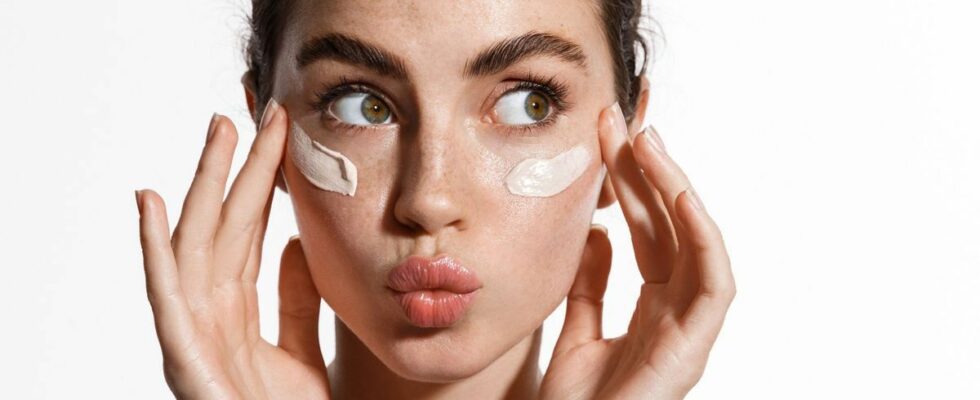Published on
Updated
Reading 2 min.
Zinc has become TikTok’s essential food supplement. Anti-inflammatory, antioxidant… it is full of virtues for the proper functioning of the body. Naturally present in our body, this trace element has benefits against inflammatory acne.
Zinc is an essential trace element present in tiny quantities in our body. Lately, it has attracted increasing interest on social networks, especially on TikTok, where many influencers recommend zinc-based food supplements to treat acne and hair loss. Indeed, zinc is essential for the proper functioning of the body and participates in many vital processes. It is found naturally in seafood (oysters, mussels, shrimp), nuts, dairy products (cheeses) and legumes (lentils, peanuts, beans).
According to Muriel Neveu, naturopath in Paris, contacted by ETX Majelan, zinc has “anti-inflammatory and antioxidant properties, which promote healing and strengthen immune defenses“. But recently transformation videos highlighting spectacular results on acne after a zinc treatment have recently drawn attention to this mineral. According to the naturopath, zinc is effective in acting against acne: “In the case of a person with acne, a zinc treatment can work quite quickly. Zinc acts directly on the activity of inflammatory cells, reduces the bacteria responsible for acne and regulates the production of sebum in the skin.”.
According to one 2012 study Oral zinc supplementation would be effective against inflammatory and bacterial forms of acne. Taking oral zinc would also be good for fighting inflammatory and bacterial forms of acne. However, oral supplementation can cause side effects such as nausea, diarrhea, and vomiting.
This is why the naturopath advises paying attention to the dosage and respecting the dosage recommended by your doctor: “For optimal effectiveness, the duration of the treatment should not exceed two months and the maximum daily dose is around 15 mg.“, she declares. She adds: “However, it is important to emphasize that self-medication is not recommended, and a medical consultation, particularly with a dermatologist, is recommended before starting any course of food supplements.”.
Although zinc is available in pharmacies, its use must be reasoned and limited to cases of proven deficiency. “It is often recommended for people following a vegetarian diet, suffering from anorexia or intestinal absorption disorders“, specifies Muriel Neveu.
But how do you know if you have a zinc deficiency? “To diagnose a zinc deficiency, a oligo-nutritional assessment can be carried out.“, indicates the naturopath. Warning signs such as “loss of taste and smell, increased susceptibility to infections, hair loss, weak nails, slow healing or reduced libido” can be observed.

